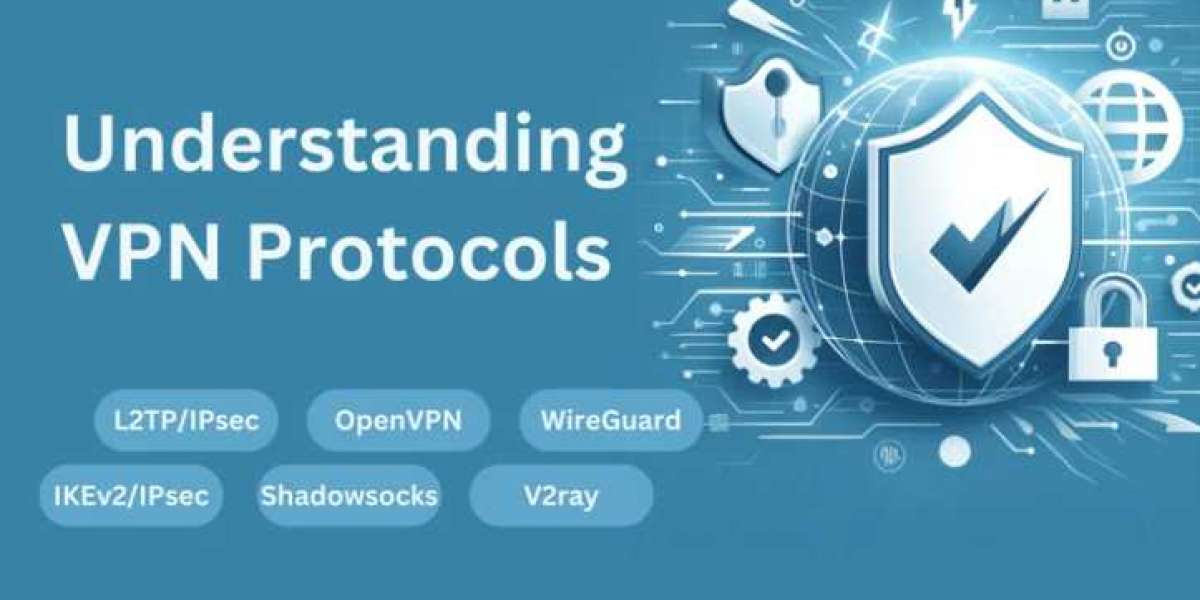Discover how Types of vpn protocols like OpenVPN, WireGuard, and IKEv2/IPsec impact your online security and speed. Learn which protocol best suits your needs and how to enhance your VPN experience with the ri
In the modern digital age, the importance of maintaining online security and speed cannot be overstated. Virtual Private Networks (VPNs) have become an essential tool for achieving this. However, not all VPNs are created equal, and the protocol they use can significantly impact their performance. In this comprehensive guide, we will explore the most prominent VPN protocols: OpenVPN, WireGuard, and IKEv2/IPsec. Understanding these protocols will help you make informed decisions about which one best suits your needs.
Understanding VPN Protocols
OpenVPN: A Trusted and Versatile Protocol
OpenVPN is one of the most widely used and trusted VPN protocols available today. It is known for its high level of security and versatility. Here are some key points to consider:
- Security: OpenVPN uses the OpenSSL library, which supports a wide range of cryptographic algorithms, ensuring robust encryption and data integrity. This makes it highly secure against various types of cyber threats.
- Flexibility: OpenVPN can be configured to run on any port, including TCP and UDP, making it difficult for ISPs to block. This flexibility is particularly useful in restrictive environments.
- Performance: While OpenVPN offers excellent security, it may not always be the fastest option due to its complexity. However, with proper configuration, it can provide a good balance between security and speed.
WireGuard: The New Contender
WireGuard is a relatively new protocol that has gained significant attention for its simplicity and performance. Here’s what makes WireGuard stand out:
- Simplicity: WireGuard's codebase is significantly smaller than other VPN protocols, making it easier to audit and verify for security flaws. This simplicity also translates to faster connection speeds and reduced latency.
- Security: Despite its simplicity, WireGuard uses state-of-the-art cryptographic techniques, ensuring strong security. It utilizes modern protocols such as ChaCha20 for encryption and Poly1305 for data authentication.
- Performance: WireGuard is designed to be highly efficient, often outperforming other protocols in terms of speed. Its lightweight nature allows for quicker connections and improved overall performance.
IKEv2/IPsec: A Robust and Reliable Option
IKEv2/IPsec is another popular VPN protocol known for its reliability and strong security features. Here are the main attributes of IKEv2/IPsec:
- Security: IKEv2/IPsec uses a combination of the Internet Key Exchange (IKE) protocol and IPsec for encryption. This combination provides robust security, making it resistant to various attacks.
- Stability: One of the standout features of IKEv2/IPsec is its ability to maintain a stable connection, even when switching networks (e.g., moving from Wi-Fi to mobile data). This makes it an excellent choice for mobile users.
- Performance: IKEv2/IPsec offers good performance, though it may not be as fast as WireGuard. It strikes a balance between speed and security, making it a reliable option for many users.
Comparing VPN Protocols: Which One is Right for You?
When choosing a VPN protocol, it’s essential to consider your specific needs and use cases. Here’s a comparative overview to help you decide:
Security
- OpenVPN: Provides robust security with a wide range of encryption options.
- WireGuard: Offers modern, cutting-edge cryptographic security with a streamlined codebase.
- IKEv2/IPsec: Ensures strong security with the combination of IKE and IPsec protocols.
Performance
- OpenVPN: May experience slower speeds due to its complexity, but can be optimized for better performance.
- WireGuard: Known for its high speed and low latency, making it ideal for performance-focused users.
- IKEv2/IPsec: Offers good performance with stable connections, especially suitable for mobile users.
Flexibility and Compatibility
- OpenVPN: Highly flexible and can run on any port, making it difficult to block.
- WireGuard: Simple and efficient, but may have limited compatibility with some older devices.
- IKEv2/IPsec: Stable and reliable, with excellent support for mobile devices and network changes.
Enhancing Your VPN Experience
To get the most out of your VPN, it’s essential to configure it correctly and follow best practices. Here are some tips to enhance your VPN experience:
Choosing the Right Protocol
Based on your needs, select the VPN protocol that best suits your requirements. For instance, if you prioritize security, OpenVPN or IKEv2/IPsec may be the best choice. If speed is your primary concern, WireGuard might be more suitable.
Optimizing Settings
Ensure that your VPN settings are optimized for your specific use case. This includes selecting the appropriate encryption level, adjusting connection settings, and choosing the right server location.
Regular Updates
Keep your VPN software up to date to benefit from the latest security patches and performance improvements. Regular updates are crucial for maintaining the security and efficiency of your VPN.
Using Multi-Hop VPNs
Consider using multi-hop VPNs, which route your traffic through multiple servers, enhancing your privacy and security. This approach can provide an additional layer of protection against potential threats.
Conclusion
Choosing the right VPN protocol is critical for ensuring your online security and speed. OpenVPN, WireGuard, and IKEv2/IPsec each offer unique advantages, and understanding their differences can help you make an informed decision. By selecting the protocol that best meets your needs and optimizing your VPN settings, you can significantly enhance your online experience.





